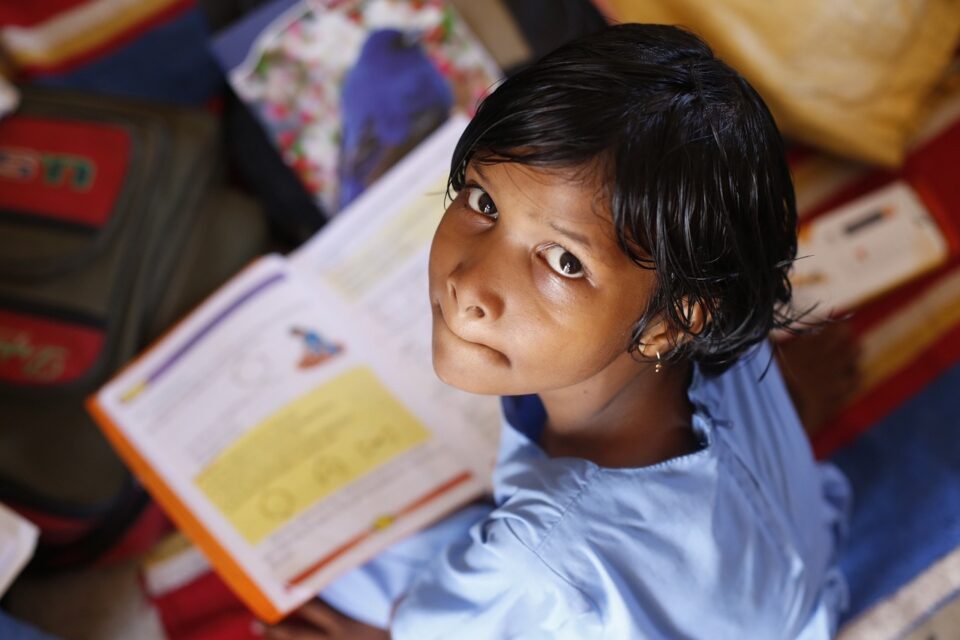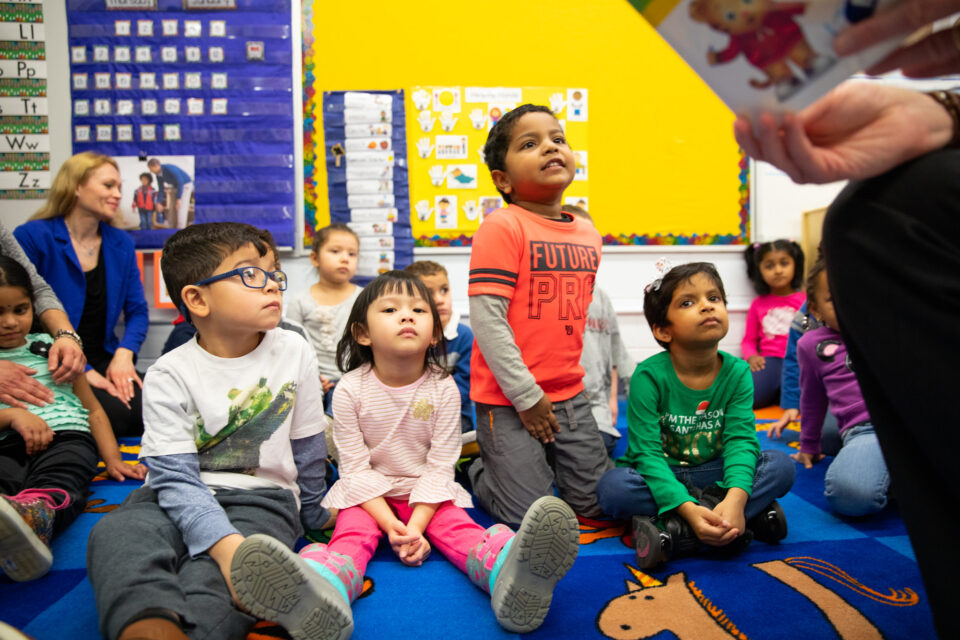
Sheesh, SCHI: A Civil Rights Complaint, Plus the Director of Lakewood Special Ed School Accused of Stealing Million Dollars from the District
April 19, 2018
Lakewood Update: Email from Superintendent Winters and Attorney Inzelbuch
April 26, 2018I Could Deal with Holland But I Got Caracas: A Special Needs Mom’s Story
This post is by Liz Winslow, a school choice warrior and mom of three children, two of whom have special needs. Her work has previously appeared on NJLB here and here.
Welcome to Caracas.
When my first child was diagnosed with a life-changing disability, I was devastated. And some advice I got — which I hated at the time but had come to appreciate — was to view this parenting journey as a diversion from Italy to Holland, per a well-known piece of writing (reproduced below).
But now? I’d love some tulips and rain. I feel like I’ve been pushed out of a plane over Caracas without a parachute and in the middle of a food riot.
I’ve written quite a bit about my 11 year-old, Tristan, for various reasons. We knew something was undeniably wrong before he entered kindergarten, but falling through every imaginable crack led him to not being diagnosed with autism until age 8. As time’s gone on, he’s gotten worse. He has severe ADHD; I usually give him Concerta while he’s still in bed in the morning because until it kicks in, he is a nearly non-verbal, screaming, raging shell of a person. Even after it kicks in, he still has all of his autism difficulties; his school considers it a win that he’s not hiding under his desk anymore, even if he’s heading to summer school for refusal to do his work, despite a high IQ.
But we could deal with that, absent some other things. He’s been at CHOP [Children’s Hospital of Philadelphia] practically monthly over the past two years because of physical disabilities that have only gotten worse — everything from an EMG (failed), to the neuromuscular clinic, to the feeding clinic, to a genetic ophthalmologist, to brain MRI, to a dietician, to general surgery. He went from being a skinny kid to so emaciated that when his behaviors were off the charts, we couldn’t get him into an intensive outpatient program because the local hospital insisted he’d need to be admitted inpatient for feeding first. He finally got a feeding tube this past November. While he’s now refusing almost all oral intake, at least calories are going in. And if from time to time the button pops out leaving an oozing hole in his stomach that closes frighteningly fast until we stab it back into him, or we have stomach contents leak all over the floor that attract ants, well, that’s the cost of doing business.
But we could deal with that, absent some other things. He has genetic markers indicative of an incredibly rare disease called Cohen’s Syndrome. CHOP genetics took an interest because Tristan and Aaron are the first boys in my maternal line to survive early childhood since the 1840s, and here comes Tristan with a lot of problems, and Aaron’s not looking so good — so exome testing was done, and my, what a surprising result. How ironic that we’d gone through the Ashkenazi panel before he was born because I was so afraid of genetic problems, but here we are anyway.
While he does seem the rarest of the rare in having a mild case, one big side effect of Cohen’s is retinal dystrophy. In English: he may go blind. He’s so far — after having been somehow convinced to tolerate electrodes strung across his eyes — mercifully seems to have avoided this. But it’s in the background. What if he does go blind? Everything he does do relies on vision.
But we could even deal with that, absent some other things. Enter Aaron.
Aaron is my baby. He is a blond-haired, blue-eyed cherub of a five year old. He was our last surprise, the completion of our family, the smartest baby with the biggest smile ever. He is in the 98th percentile for IQ and constantly amazes me at the questions he asks — like, say, how prisms work. But my baby never stopped screaming for the first three years of his life, and he was moved into a handicapped pre-K at age three and a half because of his explosive tantrums.
But we could deal with that, too. His Pre-K teacher and her team are wonderful. Aaron wasn’t a saintly child by any stretch, but he’d really started using his (considerable) vocabulary to express upset and being able to emotionally regulate himself better. But then January happened. He fell off a cliff.
And now we can’t deal with it anymore.
Just two days ago, I was getting x-rays to ensure Aaron hadn’t broken a bone in my foot during a physical tantrum. About a month ago, my eye was partially swollen shut after Aaron had kicked me in the face. School, and I, noted that his outbursts often weren’t pure sadness or anger anymore, but had a manic component that was beyond all reason, and now have grown to include elopement. A neurodevelopmental pediatrician thinks he has severe anxiety. Inventories his teacher and I have filled out, plus observation, indicate very severe depression which manifests in outbursts.
Let’s put together what mania and depression are, pause and reflect.
We’re in a holding pattern until Aaron turns six in terms of psychiatric support and official diagnoses, but, well, we know he’ll keep a psychiatrist plenty busy.
We sat today with nine professionals from two school districts who unanimously agreed that neither district could accommodate Aaron in kindergarten. There is no such thing, it turns out, as a self-contained classroom for a brilliant kid who needs staff trained in physical restraint for the safety of the rest of the class. There is no option but an out-of-district placement to a school that will accommodate a different kind of the rarest of the rare: a very smart kid who is not autistic but who is completely out of control.
I feel incredibly blessed to have my daughter Cora, who is neurotypical and social and wonderful — and whose existence honestly does show me that our sons had incredibly bad luck, not incredibly bad parents. But this is the death of any number of dreams. Of having our kids all in the same school. Instead of taking a picture of Aaron on his first day of kindergarten in front of our house, we’ll be loading him onto a short bus to travel 25 miles each way to a school that can deal with a child who is so dangerous. We’d already mostly given up on playgrounds because while most parents are extremely tolerant of visible disabilities, mental illness, not so much — and I had to give up on being all over him and apologizing all the time.
He’s not going to do sports, or be in clubs, and I don’t even understand why not. At least with Tristan there are THINGS we can point to — a bad family history with the health of boys, diagnoses out the wazoo. With Aaron there’s… nothing. He just can’t function in any way remotely approaching normal.
It is super hard not to ask WHY DOES THIS KEEP HAPPENING TO US? We’re not evil people. Our kids aren’t evil people. We got all the right prenatal care and moved to the right school district and saw all the right doctors and specialists. We have objectively brilliant children. But as of now, it seems like we’ll be lucky to send one to Vo-Tech and keep the other out of jail. If and when Cora wants to go to college 10,000 miles away, I won’t blame her a bit.
I want and need to go back to work… but really, how can I? How can I be in an office with my head in the game knowing that I’ll need to deal with several communications a day for both boys, both of whom are getting worse? How can I not go back to work and pay for the latest multi-four-figure round of therapies? I don’t know.
I did join care.com today to try to find a nanny. Behold, the most depressing thing I’ve ever posted on the internet:
My NT daughter is 8, and my special needs sons are 11 and 5.
My 11-year-old has HFA [High Functioning Autism], severe ADHD for which he’s medicated, and receives OT and PT for coordination and low tone. He is suspected of Cohen’s Syndrome and gets overnight tube feedings.
My 5-year-old son will be an out-of-district placement (school TBD) for K. He is in the 98th percentile for intelligence and the 1st-4th percentiles for behavior and depression.
We are looking for a care provider familiar with Handle With Care physical restraint protocol for our 5-year-old, who is by far the most challenging child for a caregiver. He loves 1:1 adult attention. We also need a caregiver with her own transportation who can get our kids to piano, soccer, etc.
There’s no message here. There’s nothing to add. It’s not fishing for sympathy. It’s an expression that for all the upheaval we’ve dealt with over the past several years, I’d never once thought that there wouldn’t be a happy ending. And it is really hard right now to see how there will be one. I have one barely functional and one completely non-functional, and a third who quite understandably just wants to be away from the house and with her friends all the time. And I don’t know why it happened, or how it happened, or how to fix it. And it’s starting to look like it will take years to even improve, and fix might never be on the table.
I could’ve dealt with Holland. I got Caracas. All return flights have been canceled, and it’s a real long swim back.
Welcome to Holland, by Emily Perl Kingsley
I am often asked to describe the experience of raising a child with a disability — to try to help people who have not shared that unique experience to understand it, to imagine how it would feel. It’s like this……
When you’re going to have a baby, it’s like planning a fabulous vacation trip — to Italy. You buy a bunch of guide books and make your wonderful plans. The Coliseum. The Michelangelo David. The gondolas in Venice. You may learn some handy phrases in Italian. It’s all very exciting.
After months of eager anticipation, the day finally arrives. You pack your bags and off you go. Several hours later, the plane lands. The stewardess comes in and says, “Welcome to Holland.”
“Holland?!?” you say. “What do you mean Holland?? I signed up for Italy! I’m supposed to be in Italy. All my life I’ve dreamed of going to Italy.”
But there’s been a change in the flight plan. They’ve landed in Holland and there you must stay.
The important thing is that they haven’t taken you to a horrible, disgusting, filthy place, full of pestilence, famine and disease. It’s just a different place.
So you must go out and buy new guide books. And you must learn a whole new language. And you will meet a whole new group of people you would never have met.
It’s just a different place. It’s slower-paced than Italy, less flashy than Italy. But after you’ve been there for a while and you catch your breath, you look around…. and you begin to notice that Holland has windmills….and Holland has tulips. Holland even has Rembrandts.
But everyone you know is busy coming and going from Italy… and they’re all bragging about what a wonderful time they had there. And for the rest of your life, you will say “Yes, that’s where I was supposed to go. That’s what I had planned.”
And the pain of that will never, ever, ever, ever go away… because the loss of that dream is a very very significant loss.
But… if you spend your life mourning the fact that you didn’t get to Italy, you may never be free to enjoy the very special, the very lovely things … about Holland.





1 Comment
Thank you for sharing this. Right now I’m in a rough suburb of Holland – hoping I’ll still make it to Italy, but now at least I have a better understanding, so if we stay in Holland- or even Caracus – we are not alone 🙂 Thank you and good luck xx